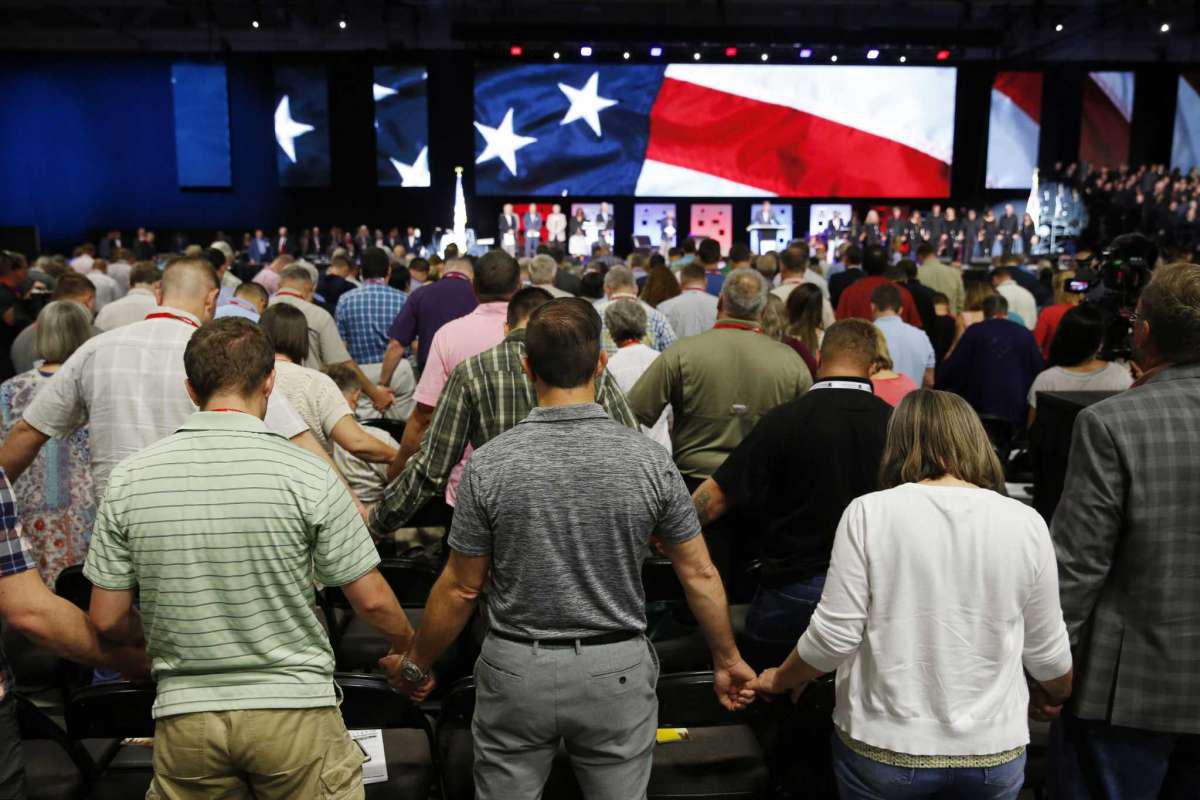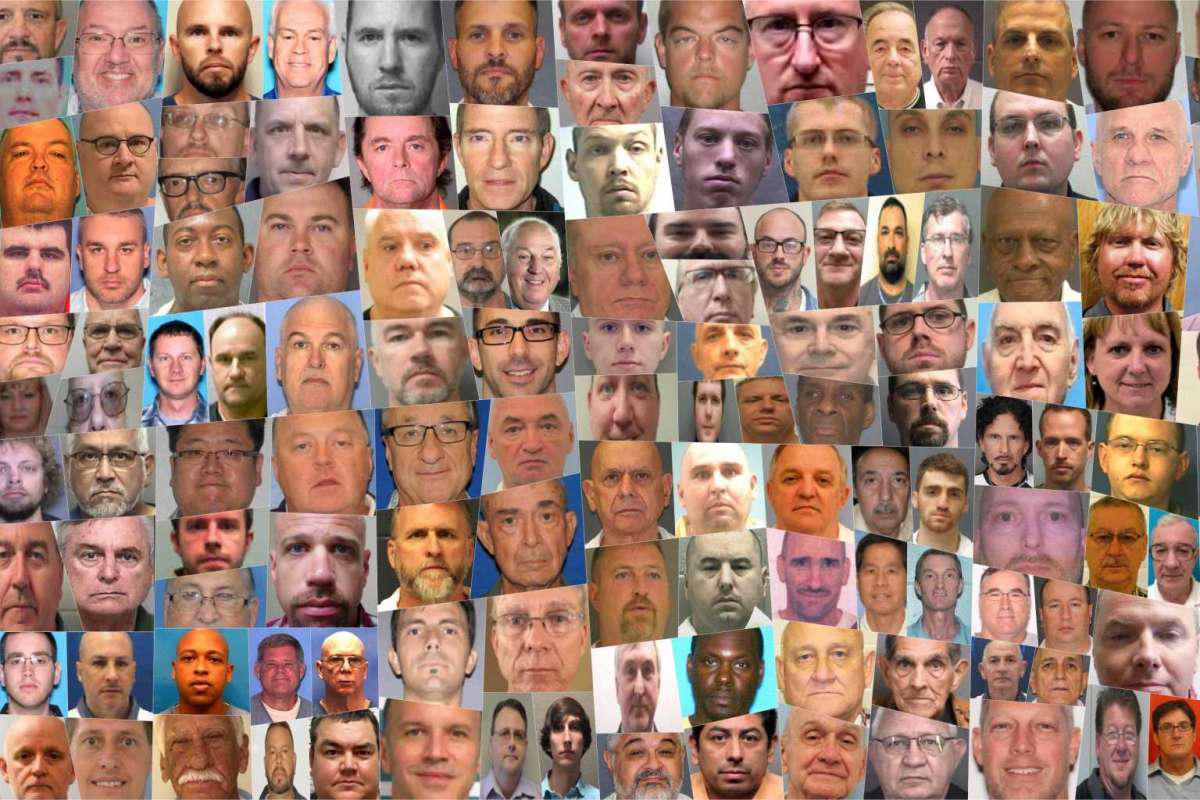|
Catholics join Baptists in supporting legislation to support sharing of employees’ sex-abuse histories
By Robert Downen
Texas Catholic leaders have joined Southern Baptists in their support of a bill that would allow churches to share former employees’ sexual abuse and misconduct allegations without being sued. The bill, filed last month in the Texas Legislature by Southern Baptist minister and McKinney Rep. Scott Sanford, comes as Catholics and Southern Baptists — the nation’s two largest faith groups — wrestle with sexual abuse crises. Sanford said the legislation would help prevent sexual predators from moving into unsuspecting churches, an issue that was detailed in “Abuse of Faith,” a recent investigation by the Houston Chronicle and San Antonio Express-News that found at least 700 victims of sexual abuse or misconduct by Southern Baptist church leaders and volunteers since 1998. In some of those cases, the newspapers found, churches did not alert other congregations about allegations against former employees out of fear of lawsuits. The Texas bill would give immunity to those who make such disclosures in “good faith.” Though the two faiths are voicing similar support for the bill, there are important distinctions in their structures. Southern Baptists profess that each of the denomination’s 47,000 cooperating churches are self-governing and autonomous, and church leaders thus normally don’t interfere in the business of other congregations. Nor does the SBC track ordinations, most of which are done at the local level. The Catholic Church, meanwhile, is far more hierarchical, and it extensively tracks where clergy have worked and sexual abuse allegations made against them. Those records have proved integral to investigations such as the one conducted by the Pennsylvania attorney general last year. On Monday, hours after the Archdiocese of Galveston-Houston announced it was investigating allegations that a local priest had fathered a child with a parishioner overseas, a Catholic official testified that the bill would assist in “eradicating the evil” of sexual abuse. “The bishops believe that transparency in this painful matter of sexual abuse can assist healing for survivors and transformation for our society,” said Jennifer Allman of the Austin-based Texas Catholic Conference of the Roman Catholic Bishops of Texas. The bill, she said, “is consistent with Pope Francis’ proclamation that there is absolutely no place in ministry for those who would sexually abuse another person.” ‘Protect the vulnerable’ An official with Texas’ largest Southern Baptist group voiced similar support, but said that churches “need to protect the vulnerable whether we are shielded or not.” “We know of churches and institutions that have written policies never to disclose the reason for a termination to anyone seeking a job reference,” said Ben Wright, a Cedar Park-based pastor and an official with the Southern Baptists of Texas Convention. “The sole purpose of these policies is to minimize exposure to civil liability. But we are not ordinary businesses. We believe that it rests on us a moral obligation that demands more.” Sanford said his bill “shines a light” on the “sexual abuse that thrives in secrecy.” That sentiment has been welcomed by victims of sexual abuse and advocate groups such as the Survivors Network of those Abused by Priests, a national organization started in response to Catholic abuses in the 1990s. But those groups also say that more should be done to protect victims, some of whom have been targeted with defamation suits by those they accuse of abuse. The bill “should help to drive more reporting” of abuses, Michael Norris, of Houston’s SNAP chapter, said Tuesday. But, he added, “there should be some verbiage in there about protecting the victim. They’re not thinking about protecting the victim.” SNAP continues to push for more sweeping changes to the state’s statute of limitations for civil lawsuits. Texas and other states have reformed such laws for criminal cases, but changes to civil rules have sometimes been quashed by lobbyists for groups that include the Catholic Church, Boy Scouts of America and insurance companies, according to Marci Hamilton, an expert on child sexual abuse laws. In Texas, the window for reporting criminal sexual abuses of children was broadened more than a decade ago. It’s precisely why Tarrant County prosecutors were able to indict Anne Marie Miller’s alleged abuser last summer. Wright, the Texas’ Southern Baptist official, cited a story similar to Miller’s when testifying in support of HB 4345 on Monday. Miller was a teenager in Fort Worth when she says she was groomed for sex by a local seminary student. In 2007, she contacted the Southern Baptist Convention’s International Missions Board after learning her alleged abuser was working there, prompting an internal investigation that concluded that the man, Mark Aderholt, “more likely than not” had abused Miller. Aderholt soon after resigned, though mission board officials declined to alert his future employers in other states about the claims in part because of fears of civil litigation, they later said. He was extradited last summer from South Carolina to Texas, where his criminal case is ongoing. Miller on Tuesday called the bill a “very good step in the right direction,” but said SBC entities such as the IMB need to be held accountable for past failures. Contact: robert.downen@chron.com
|
.
Any original material on these pages is copyright © BishopAccountability.org 2004. Reproduce freely with attribution.

